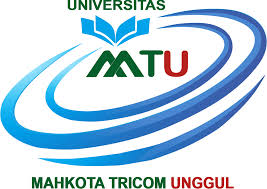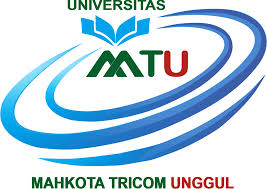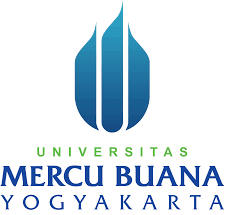Leadership Adaptation During AI-Driven Institutional Transformation
DOI:
https://doi.org/10.55927/fjst.v4i9.249Keywords:
Leadership Adaptation, Artificial Intelligence, Institutional Transformation, Human Resource Management, Adaptive LeadershipAbstract
This study explores how leaders adapt to institutional changes driven by artificial intelligence (AI), focusing on leadership strategies, managerial flexibility, and their impact on human resource engagement. Using a qualitative case study with 12 key informants from a higher education institution in Riau, data were collected through in-depth interviews and analyzed thematically. Findings show that effective leadership adaptation relies on articulating a clear AI transformation vision, developing human resource capacity through continuous training, and implementing participatory communication to reduce resistance. The study concludes that leadership adaptation is crucial for sustaining AI-based transformation and contributes both theoretically and practically to adaptive leadership and HR management in the digital era.
References
Abdurahimova, S. (2025). Adaptive leadership in higher education transformation. Journal of Educational Change, 18(2), 145–160.
Boddy, C. R., Smith, L., & Patton, M. Q. (2022). Sample size in qualitative research: An evaluation of guidelines and practices. Qualitative Inquiry, 28(4), 512–528.
Brown, T., & Green, M. (2022). Balancing human values in automated workplaces: Leadership challenges in the AI era. International Journal of Human Resource Studies, 12(3), 33–49.
Carter, N., Bryant‐Lukosius, D., DiCenso, A., Blythe, J., & Neville, A. J. (2021). The use of triangulation in qualitative research. Oncology Nursing Forum, 41(5), 545–547.
Cheraghi, M. (2023). Rethinking resistance in organizational change: A cultural and psychological perspective. Journal of Change Management, 23(1), 77–93.
Clarke, V., & Braun, V. (2021). Thematic analysis: A practical guide. London: Sage.
Daniel, B., & Harland, T. (2023). Ensuring credibility in qualitative research: Member checking and peer debriefing revisited. Qualitative Research Journal, 23(1), 12–27.
Dotan, R., Parker, L., & Radzilowicz, D. (2024). Generative AI adoption in higher education institutions: Challenges and opportunities. Computers & Education, 207, 104875.
Etikan, I., & Bala, K. (2023). Sampling methods in qualitative research: A comparative overview. International Journal of Academic Research, 9(1), 215–223.
Evitha, N. (2024). Strategic leadership in digital transformation of higher education. Journal of Management and Education, 19(1), 88–102.
Fernandez, R., & Ibrahim, A. (2024). Authentic leadership and digital capability in academic organizations. Leadership and Organization Development Journal, 45(2), 215–229.
Garcia, L., & Thomas, R. (2023). Cultural perspectives in adaptive leadership for digital transformation. Leadership & Organization Studies, 40(3), 275–289.
Haetami, R. (2024). Digital literacy and challenges of AI adoption in higher education teaching. Indonesian Journal of Educational Technology, 14(2), 101–115.
Hamilton, A. B., & Finley, E. P. (2023). Qualitative methods in implementation research: A practical guide. Psychiatry Research, 330, 115–122.
Harvey, G., & Jones, A. (2021). Leadership and digital transformation: A framework for adaptive strategies. Journal of Leadership Studies, 15(4), 45–57.
Hossain, M., Lee, J., & Park, S. (2025). AI-based leadership capabilities in digital organizations. Journal of Business Research, 160, 113–127.
Hubbart, C. (2023). Overcoming resistance to AI: Organizational change strategies in practice. International Journal of Organizational Change, 11(2), 134–150.
Indriastuti, M., Nugroho, D., & Rahman, A. (2023). Digital transformation readiness in Indonesian higher education. Jurnal Manajemen Pendidikan, 12(1), 67–79.
Khan, A., Patel, R., & Mehta, S. (2024). Artificial intelligence in HRM: Applications and implications. Human Resource Management Review, 34(1), 100890.
Lim, S., & Park, H. (2022). Inclusive leadership and employee readiness for digital transformation. Asia Pacific Journal of Human Resources, 60(2), 345–362.
Mabaso, C. (2024). Organizational culture, justice, and inclusion in digital transformation. African Journal of Management, 10(1), 77–95.
Mayasari, D., Suhara, E., Marlita, R., Widowati, N., & Damiyana, A. (2024). Transformational and participatory leadership in institutional change. Journal of Leadership and Education, 21(3), 188–202.
Mer, K. (2023). AI and workplace values: Challenges for leadership. Technology in Society, 72, 102201.
Merriam, S. B., & Grenier, R. S. (2022). Qualitative research in practice: Examples for discussion and analysis (2nd ed.). San Francisco, CA: Jossey-Bass.
Nguyen, T., & Pham, L. (2021). Adaptive leadership in organizational transformation: A systematic review. Leadership Quarterly, 32(5), 101–113.
Novak, J., & Johnson, P. (2021). Managing resistance to AI through participatory communication. Journal of Organizational Change Management, 34(7), 1553–1567.
Patel, R., & Mehta, S. (2022). AI applications in HR functions: Recruitment, training, and decision-making. Human Resource Development International, 25(2), 115–131.
Rahmat, A. (2022). Ethical leadership and innovative behaviour: mediation role of leader member exchange and perceived organizational support. Jurnal Manajemen Dan Bisnis, 11(1), 169–179.
Rahmat, A., Hardi, H., Syam, F. A., Zamzami, Z., Febriadi, B., & Windarto, A. P. (2021). Utilization of the field of data mining in mapping the area of the Human Development Index (HDI) in Indonesia. Journal of Physics: Conference Series, 1783(1), 12035.
Santoso, B. (2023). Higher education and digital readiness in Indonesia. Jurnal Pendidikan Tinggi, 5(2), 55–66.
Sharma, R., Gupta, A., & Singh, P. (2025). Artificial intelligence-based HR analytics and leadership adaptation. International Journal of Human Resource Studies, 15(1), 44–61.
Shianipar, R., Lestari, M., & Hidayat, F. (2024). Leadership models in Indonesian higher education institutions: Transformational, servant, and adaptive leadership. Jurnal Kepemimpinan Pendidikan, 9(1), 77–93.
Sitorus, A. (2022). Challenges of digital transformation in Riau higher education institutions. Jurnal Transformasi Digital, 3(1), 12–23.
Somech, A., & Zhang, F. (2025). Participative leadership and psychological safety: A meta-analysis. BMC Psychology, 13(1), 122.
Sukandi, T. (2024). Digital leadership in higher education transformation. Jurnal Manajemen Inovasi, 8(1), 33–47.
Surianto, H., Fadilah, N., & Prasetyo, A. (2023). HRM strategies for adaptability in digital transformation. Jurnal Manajemen SDM, 11(2), 89–104.
Ugli, F., Askolani, A., & Ciptagustia, M. (2024). Comparative study of adaptive leadership in higher education institutions. International Review of Education Management, 40(2), 201–220.
Wang, J., & Lee, S. (2022). Adaptive leadership skills in the digital age: Evidence from Asia. Asia Pacific Journal of Management, 39(3), 899–921.
Downloads
Published
Issue
Section
License
Copyright (c) 2025 Adi Rahmat

This work is licensed under a Creative Commons Attribution 4.0 International License.


































